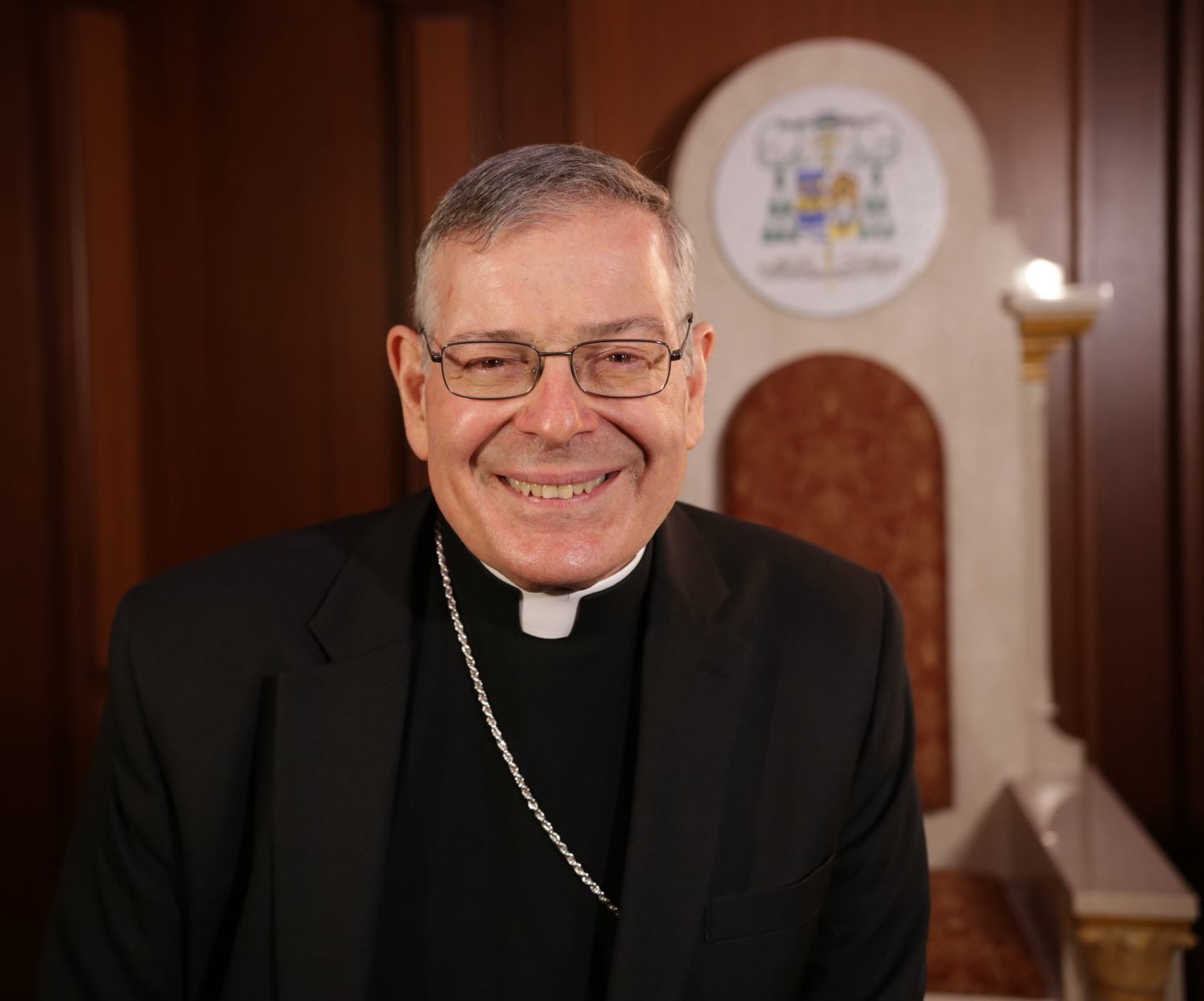
Homily Red Mass
Cathedral of St. Ignatius Loyola
November 6, 2022
Christ – our judge and lawyer
In April of this year, Pope Francis addressed a group of Italian judges, lawyers and politicians in Rome. The basis of his talk emphasized that the administration of justice requires recognizing the sacredness of human dignity. He described how throughout history there are different ways in which the administration of justice has established what is due according to merit, need, ability and usefulness. The biblical tradition regarding the administration of justice always recognizes human dignity as sacred and inviolable. Pope Francis spoke of the concept of justice as represented in classical art by the blindfolded woman holding balancing scales. This symbol represents equality, fair proportion and impartiality, which are required in the exercise of justice. Pope Francis stressed that, “according to the Bible, it is also necessary, in addition, to administer (justice) with mercy.”
As we look to the Lord, we see Him often in the Gospels as precisely a judge, but always a merciful one. His presentation of the final judgment is a good example of this as He separates the sheep and the goats. He judges fairly and justly, but His justice is based on the redeemed recognizing the dignity of every person and in their application of compassion and mercy, while the condemned are judged on their lack of these. What is most telling are those being judged. They do not recognize what is the basis of their judgment, especially in regard to the recognition, or lack of it, of the person of Jesus in the poor and outcast.
Pope Francis, in his recent homily for All Souls’ Day, spoke of this narration of the final judgment as found in the Gospel of St. Matthew, which was proclaimed that day at Mass. The pope said there was an element of surprise and astonishment on the part of the righteous as well as the unrighteous when asked, “Lord, when did we ever see you hungry or thirsty?” However, there is even more surprise because it would be expected that the judgment on life in the world would take place under the banner of justice, before a decisive tribunal, sifting through every element which would shed light on situation and intentions forever. The pope said, “Instead, in the divine tribunal, the only head of merit and accusation is mercy to the poor and discarded: the Most High dwells in the least, He who dwells in the heavens dwells among the most insignificant to the world.”
Jesus is our ultimate judge who hangs unjustly condemned to death as a criminal with the accusation of king over His head. As our judge, He is the king of mercy and love, and we are grateful that we will be judged in that regard. However, we also will be judged in regard to how we have treated others in a similar matter. While being our judge, Jesus is also our lawyer, or perhaps better, our defense lawyer. The Gospels presented to us in the past weeks are good examples of this as Jesus defends Zacchaeus, the tax collector, as well as the tax collector in the back of the Temple, before the scribes and Pharisees who try to undermine the Lord. They see themselves as without fault and in a manner that can only be judged positively while they see others in the negative.
Today’s Gospel is a good example of Jesus as a lawyer who is put on the defensive by others very knowledgeable in the law. He is approached by those who want to clarify the Jewish law which required a brother to marry the widow of his deceased brother in order to raise posterity for him. The intriguing legal question is raised as to what happens if there are seven brothers and all of them die after marrying her. Whose wife will she be in heaven. If seven marry her and each one died while married to her, I don’t think any of them would want to claim that privilege in heaven. The questioners are not so much interested in the answer as they are in confusing and confounding their listeners while confronting Jesus. However, Jesus, as He does in so many other cases, turns the tables around on them so that He does not specifically answer the question of the law but annunciates the truth, which it should represent. Jesus explains that what will be in heaven is not as it is in this world, as “God is not the God of the dead but of the living.” Jesus, as a lawyer, knows that those who truly practice the law should practice its truth, just as He knows that those who judge should do so in regard to the dignity of every person made in the image and likeness of God and always in accord with God’s plan and vision.
The lesson of Christ, our judge and lawyer, is pertinent to all of us and also is a great consolation to us. In a particular way it is an affirmation of the mission of the men and women who have dedicated themselves to the practice of law within our society. As they are gathered here this morning for this annual Red Mass, we thank them for being men and women of faith who live the truth in love. Theirs is not an easy job, by any means, especially in a world colored by politics and agendas. Their faith is a part of who they are and what they represent in public life. They are wonderful examples for us, and the world needs such example. We ask God’s blessings upon them, upon the judicial year that is before them, and we pray that we all may be under the loving mantle of Christ, our judge and lawyer.
Most Reverend Gerald M. Barbarito
November 11, 2022

